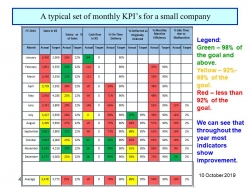Statistics show that 70% of all unemployed people in Israel during the third Coronavirus quarantine were women. The lack of symmetry between men and women in unemployment statistics has gotten worse over the pandemic. Let’s look at the data:
| Percentage of Unemployed Women | Percentage of Unemployed Men | Time Period |
| 50.60% | 49.40% | Jan-Feb 2020 |
| 56.40% | 39.60% | First Quarantine |
| 60.40% | 39.60% | Second Quarantine |
| 68.50% | 31.50% | Third Quarantine |

Why Are More Women Being Fired?
According to an article by Lee Yaron (Haaretz), there are several reasons why more women were fired, furloughed, or had asked to be furloughed:
- More women work in education. This probably refers to preschool and daycare centers closing, as schools continued to operate remotely.
- During quarantine children were at home and needed parental supervision. In such a situation, there are three options - dad stays at home, mom stays at home, or both parents share supervision of the kids.
Yaron quotes Yaara Man from the Berl Katzenelson Fund, according to whose research, six times more women than men stopped working in order to stay home with the kids during the pandemic.
Why? What are the root causes? I’ll discuss this shortly.
Similarly, the same research found that 30% more women than men reduced hours in order to care for their kids. - Institutional discrimination. According to Rami Garor, the head of Israel’s National Employment Service, the financial crisis hurt more women because of institutional discrimination which pushes women to lower paying professions, with less possible advancement and less resiliency.
Are Women Solely the Victim, or Do They Share Responsibility for Their Plight?
Yaara Man’s research includes women who chose to stop working, or to reduce hours, in order to stay home with their children while their husband works.
One of the possible reasons for that, which I hear from many women, is that their husband makes more than them, so he’ll continue working and they’ll stop working.
For example, in the past I coached a woman who wasn’t happy with her job for various reasons, including low pay (which wasn’t in line with her skills or her role). She wanted to change jobs, and among the criteria she set for a new job was salary. I suggested she include her husband in the process. Make a financial plan together in order to decide what salary she should aim for.
Her husband, whose salary was almost four times higher than hers, told her not to worry. To pick a job based solely on interest, and not on salary. He’ll take care of the money.
On the other hand, he worked an hour away from home, while she worked only 15 minutes away.
As far as the husband was concerned, it was fine for his wife to work for low pay, because he could support the family on his own.
This is a common perception.
Often working for lower pay is also a choice women make, for reasons I’ll discuss below.
Why Are Women Willing to Settle for Lower Pay and Less Rewarding Jobs?
Before continuing, I want to make clear that the below is of course a generalization - I’m writing about women as a group, not about specific women. Some women certainly do not fit this generalization.
I think the reasons mentioned by Lee Yaron are results, not reasons or root causes.
To find the root causes, let’s use the 5 Why’s technique.
Our first Why question is - why are more women unemployed?
One of the reasons already identified is that their salaries are lower, and so they’d rather be the ones to stop working while their partner continues working. Or that they work in sectors considered less necessary in a crisis, and so are furloughed.
Following that, our second Why will be - why are women’s salaries lower? My answer is that in many ways that is a choice women make.
So our third Why is - why are women willing to settle for lower salaries and less rewarding jobs?
Briefly, I suggest three reasons:
- Many women are willing to settle for less (less salary, status, or prestige) in order to work close to home and be available for childcare.
- Women look for stability in their work.
- Women tend to think that they must have clear cut proof that they deserve something before trying to achieve it. They tend to underestimate their abilities, while men tend to overestimate. This observation is supported by a research project done in the University of Texas.
The first two answers are trivial, and mean that women’s bargaining power is reduced.
By the way, female managers also take advantage of the situation and pay their female employees less.
Let’s take a closer look at the third answer.
Do Many Women Have Low Self Esteem?
My answer is - Yes, and I want to show you it’s a widespread phenomenon.
In the prestigious computer science program in my kids’ high school, the rate of girls among participants is usually around 10%.
Someone in the know told me many girls don’t believe they are good enough, and only the best join the program. As a result, all the girls participating are A+ students.
This continues in the IDF’s cyber program. Until recently only 15% of soldiers in the program were women.
The IDF realized that boys will always answer difficult questions, even when unsure of the answer, while girls would rather say they don’t know.
As a result, despite having equal skills, boys will pass the tests and girls won’t.
After realizing that, the IDF began a pre-testing course for female candidates so that they’ll have more faith in their skills and their abilities to pass the tests.
I assume you agree with me that men aren’t inherently more skilled. They just aren’t afraid to declare they know something even when they have no knowledge of the matter.
Where does it begin? Is it nature or nurture?
I don’t think it’s nature. Rather, very early socialization.
Get Hit and Bite Your Tongue
I recently listened to a radio program about domestic violence in the Arabic population in Israel. Two Arabic women researching the phenomenon explained that many Arabic women suffering abuse don’t turn to the police (in which they have no faith), but to their families.
Families would rather not deal with the problem, and tell the woman - bite your tongue and turn the other cheek. That is, accept the abuse as a fact of life.
This is of course a damaging approach. But even if we look at other less extreme situations, that don’t include such explicit violence - we’ll find other approaches “teaching” women to accept an inferior role in life.
Gender at a Young Age
My two-and-a-half year old granddaughter, whose aunt recently gave birth, is constantly playing at being pregnant and giving birth to her imaginary baby “Guda”.
While my one-and-a-half year old grandson only cares about toys with wheels. Dolls, babies and pregnancies don’t interest him at all.
Thirty years ago, things were the same. Only then we’d say it starts with books for toddlers, where boys perform “manly” tasks, and girls “womanly” ones (like cleaning and cooking).
Today many kids' books don’t include such messages, yet kids still tend to identify with the parent of their own gender.
My conclusion is that girls copy their mothers’ behavior, and boys their fathers’.
So, even though the Y and Z generations are very different, some behaviors are learnt from our parents or other socializing entities at an early age, and they stay with us.
The Third and Fourth Why’s
To our third Why: why do women choose or are willing to settle for lower pay and less rewarding jobs?
My answer is that women have a low estimate of their own abilities, as I’ve shown above.
And our fourth Why: why do women have such a low estimate of their abilities?
My answer is it’s probably an assumption passed down from generation to generation, and young girls absorb it from an early age.
I say again, this is a generalization, and not personal. I have coached many women, with a lot of talent, who were stuck with a mindset of low esteem they had to work very hard to let go of.
Why Does the Gap Between Genders Grow?
Up until now I’ve addressed why more women are furloughed and some things to address. But is the gender gap growing?
Why does the graph above show us the gap between unemployed men and women grows with every quarantine?
I don’t have a definitive answer.
In an article I published here in March, What Has the Coronavirus Taught Us, and Which Lessons Should We Remember Moving Forwards?, I presented data of hundreds of thousands of people who were fired during the first or second quarantine, rehired, and fired again during the next quarantine. Bottom line, every quarantine saw more women than men furloughed or fired.
I don’t remember any change in policy between quarantines, and I fear it’s rather mental exhaustion. The entire population has suffered mentally, and I think two things combined to create the phenomenon we’re seeing: more women chose to be furloughed and receive unemployment, while more employers lost the ability to survive the financial crisis without firing employees. And when firing employees - they preferred to fire those in more junior roles, often women.
How to Deal with Institutional Discrimination?
I refer back to Garor’s assertion that women are more adversely affected by the financial crisis due to institutional discrimination.
I think it’s not that institutional discrimination directs women to low paying jobs, but that women allow themselves to be thus directed.
The only way to bring about change is to improve women’s self-esteem.
I see a noticeable recent change in women’s self-esteem. But usually, that change still doesn’t affect salary discussion. Here, old doubts resurface and sabotage women’s negotiations.
Additionally, often for higher paying jobs, one would have to be willing to travel further from home.
Rights Aren’t Given, They’re Taken
Unlike driving, when you need to give or get right of passage - when it comes to rights, women have to take.
If women have fewer rights, then men have more rights. We can’t expect an entire sector enjoying extra rights to give them up without a fight. That won’t happen. Women must take responsibility and take what they deserve.
Summary and Recommendation
In this article I tried to answer the question, why are so many more women unemployed than men?
I think the answer has several causes:
More women chose to be furloughed because their husbands make more money, or in order to stay with the kids during quarantines. Employers fired or furloughed more women because they often hold more junior positions.
Here came the question, why do women choose to work in less rewarding jobs?
This has two possible answers:
- In order to stay close to home and be available for childcare. This lowers their bargaining power.
- Women have low self-esteem, and undervalue their skills. This seems to be replicated over the generations. Even though women now work in all fields, still when negotiating salary their undervaluation of themselves surfaces and they’re willing to settle for less.
It’s true employers (men and women) offer women lower pay than men, but I think they do that because they know they can.
If women want to create change, they must be the driving force behind it, and not expect men to initiate it.
Men won’t relinquish their privileges of their own free will. By this, I don't mean specific men, but men in general.
Focused and Fast Coaching and Consulting Services for CEOs and Companies during the Coronavirus Crisis
The Business Excellence team can help you build, within 2-4 working days, a plan to survive this financial crisis, or to achieve your goals, as we’ve explained in our first webinar from August 2020 [in Hebrew].
Our experts have a wide and diverse experience of over 100 years combined managing companies and consulting to CEOs – so we will be able to identify the unique needs of each company, and find the safest and fastest way for you to approach the new challenges presented by the crisis, and to ensure your company’s resilience.
If you are interested in my professional help, personally or for your company, the best way to contact me is to send a request through the Get in Touch form here.
Related Article
What Has to Change So that Women Will Learn to Demand the Same Salary as Their Male Colleagues?












 My First Book: Manage! Best Value Practices for Effective Management
My First Book: Manage! Best Value Practices for Effective Management